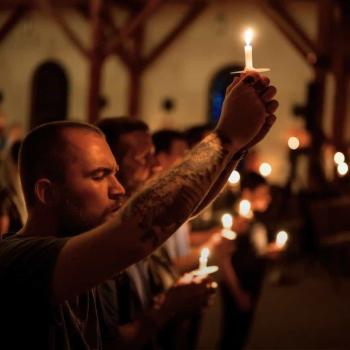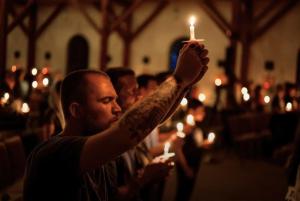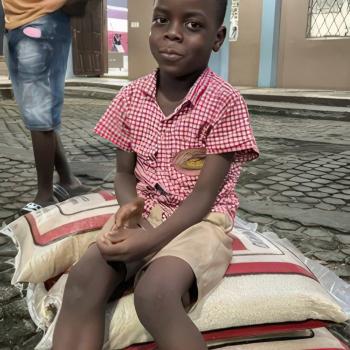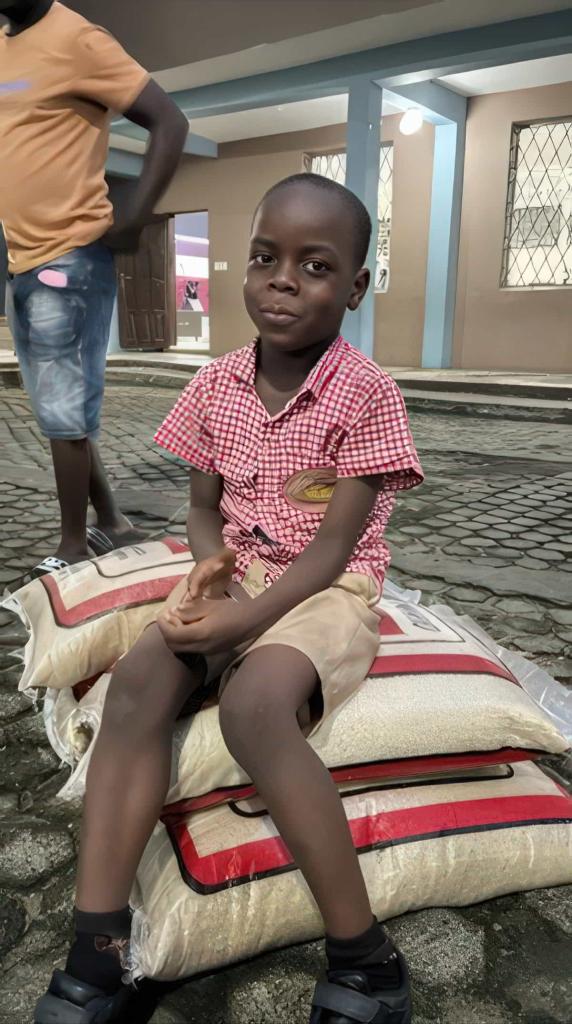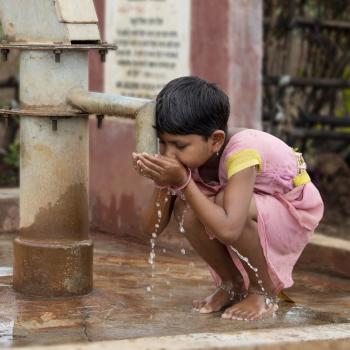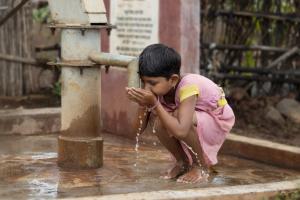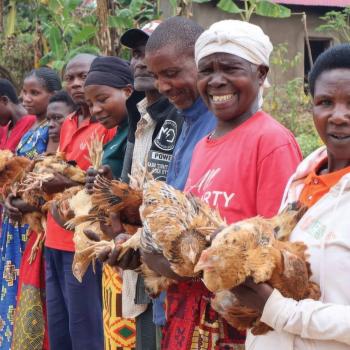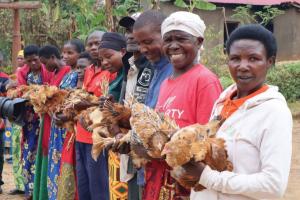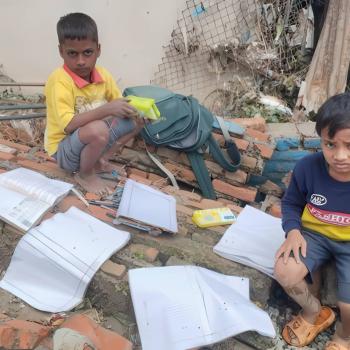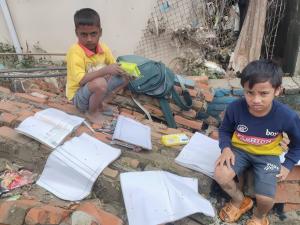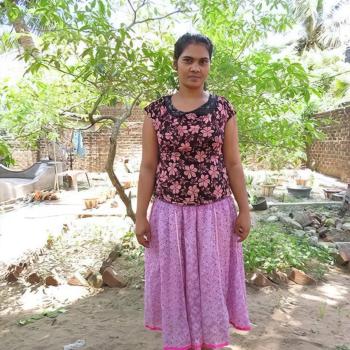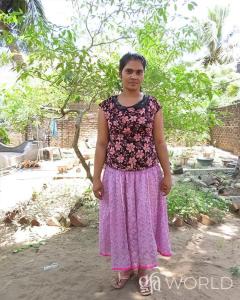Madin finally had to leave. Being from the lowest class, he had suffered exploitation and mistreatment at the hands of his upper-class neighbors all his life. He couldn’t handle the abuse anymore. Seeking peace for his family, he knew they could no longer live in their village. In the face of such hardships, Madin moved his family to a big city, hoping for more opportunities in a place where class was not the sole identity of an individual. Having no connections, the harassed family moved to a large slum within an overcrowded city. All over the world, millions of disenfranchised people have ended up in similar slum dwellings. In 2017, about 900 million people lived in slums across the globe.
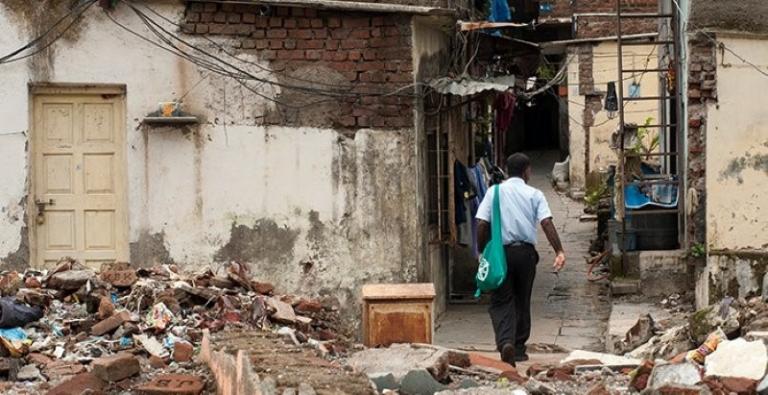
Hope Dawns in the Slum with Message of Acceptance
Madin worried about his children. He had escaped ridicule, but poverty had followed him. He seemed doomed to live as an outcast with his children inheriting his fate.
Then, one day, Madin heard about a God who loved him. Amaan, a first-year Bible college student, went to Madin’s slum to share about God’s great love and forgiveness of sins. As Amaan walked through the muddy, narrow lanes of the slums, his heart broke for the people living in these conditions. He wanted to help them any way he could to improve their lives. But what could he, a poor, Bible college student, do?
When Amaan met Madin, he shared God’s Word with this discouraged father. Madin listened attentively to the Bible college student share about the God who accepted them, even though they had always felt so worthless and disposable.
In Need of a Miracle
Amaan faithfully taught weekly literacy classes in the slum. One week, as he made his way to the slum, he passed by a mountain of garbage and found a small boy rolling in the refuse, covered in dirt.
Shocked, Amaan approached the boy and recognized Madin’s son, Savith. Amaan quickly found the boy’s parents to ask what happened. Madin shared how, a week before, Savith began acting strangely and kept wanting to go to the garbage pile. They realized he was being afflicted by an evil spirit, so Madin and Ramana took him to a religious leader to perform a sacrifice on behalf of their son. But Savith continued to get worse throughout the week.
His distraught parents didn’t know what to do. They couldn’t afford to take him to get medical attention. They hoped he would somehow heal on his own. Feeling helpless, Madin and Ramana left their son to roll in the garbage heaps.
Miracle Leads to Worshiping Community
Amaan moved closer to the flailing boy. He reached out his hands and offered a simple prayer to Jesus. Savith immediately sat up and looked at Amaan. Encouraged, Amaan talked to the boy, but Savith did not respond. Amaan prayed again, and the tormenting spirit left. Savith stood up, perfectly healthy.
“We prayed and went to the temple … but nothing happened to him,” the parents explained. “However, you have prayed, and this boy is healed now.”
Seeing their beloved son restored filled Madin and Ramana with joy. They encouraged Amaan to visit them frequently.
“Our door is open for you all the time,” they told Amaan.
News of the little boy’s healing astounded many neighbors in the slum. Intrigued, many came to Madin’s house to hear Amaan share from God’s Word, and they learned more about this God who had shown Himself so powerful.
No longer rejected, Madin now knows acceptance from his Heavenly Father and the love of fellow worshipers—his new eternal family.
In 2018, residents in more than 900 slums heard about the love of Christ through Gospel for Asia (GFA)-supported workers. Slum ministry is unique and requires creativity on the part of national workers. They meet people in desperate and sometimes life-threatening situations. These compassionate men and women seek to minister to people’s physical needs while also ministering to their spiritual needs.
As governments grapple with how to provide housing and services for the exploding populations in their cities, Gospel for Asia (GFA)-supported workers are bringing hope today into the litter-strewn paths of hundreds of shantytowns across Asia. Thousands of people have found hope in Jesus for today and security for eternity.
Source: Gospel for Asia Features, Treasure Unearthed in a Slum
Click here, to read more blogs on Patheos from Gospel for Asia.
Go here to know more about Gospel for Asia: Facebook | Sourcewatch | Integrity | Flickr | GFA | Lawsuit | Instagram


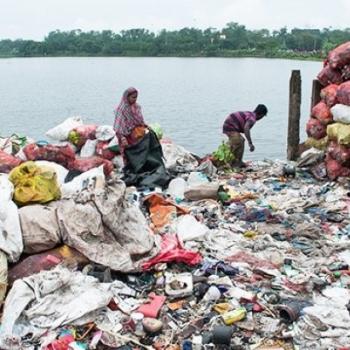
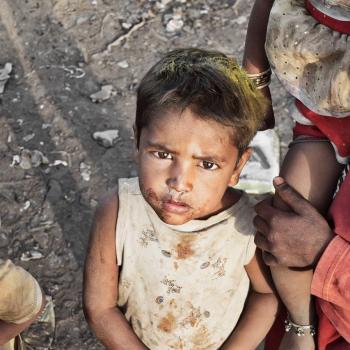
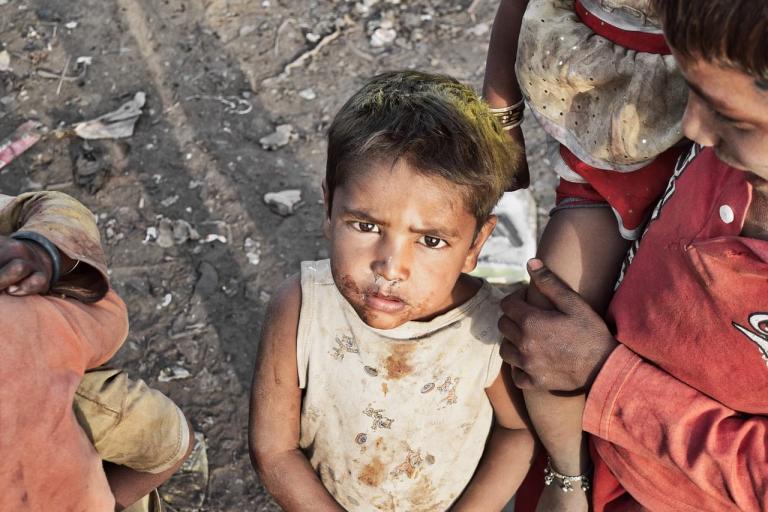
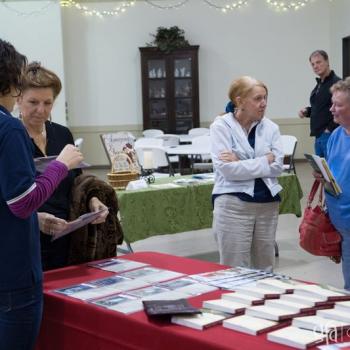
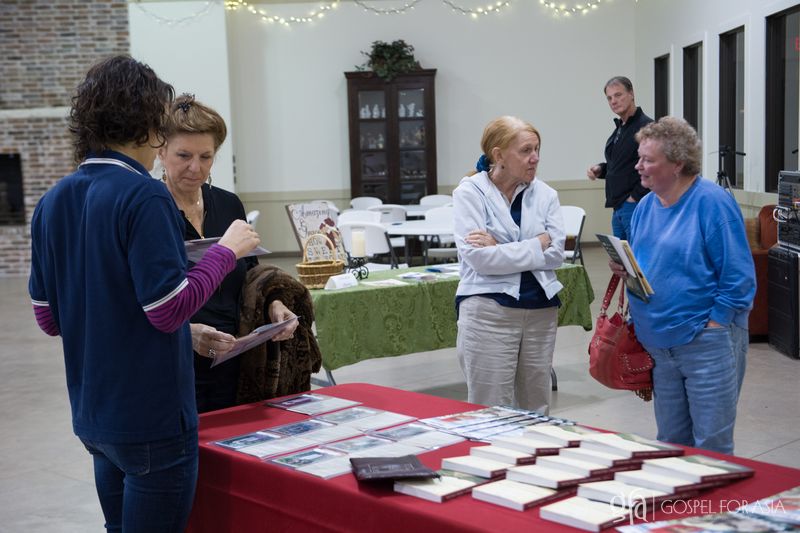
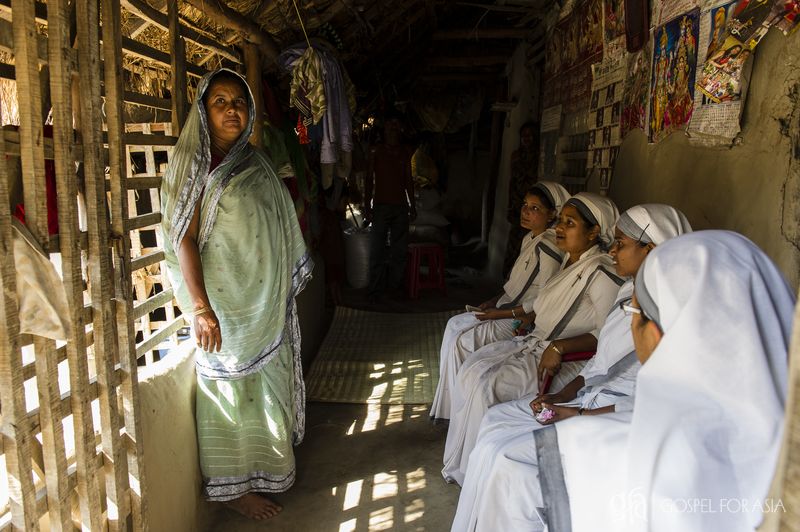
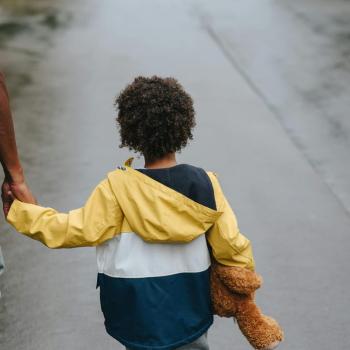
 I watched how, as he got older, his pursuit of God didn’t fade — it deepened. His heart and passion for those who had not heard about Christ only strengthened. He didn’t grow tired of the mission; he grew more consumed by it. And that passion wasn’t just in the gifts he gave or the words he spoke — it was in the life he lived, day after day.
I watched how, as he got older, his pursuit of God didn’t fade — it deepened. His heart and passion for those who had not heard about Christ only strengthened. He didn’t grow tired of the mission; he grew more consumed by it. And that passion wasn’t just in the gifts he gave or the words he spoke — it was in the life he lived, day after day.